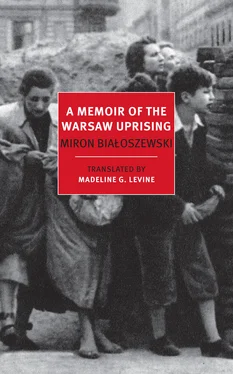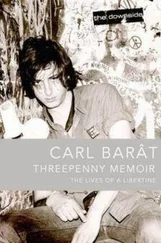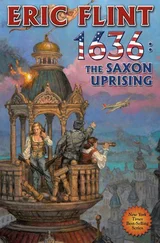Miron Bialoszewski - A Memoir of the Warsaw Uprising
Здесь есть возможность читать онлайн «Miron Bialoszewski - A Memoir of the Warsaw Uprising» весь текст электронной книги совершенно бесплатно (целиком полную версию без сокращений). В некоторых случаях можно слушать аудио, скачать через торрент в формате fb2 и присутствует краткое содержание. Год выпуска: 2015, Издательство: NYRB Classics, Жанр: Биографии и Мемуары, на английском языке. Описание произведения, (предисловие) а так же отзывы посетителей доступны на портале библиотеки ЛибКат.
- Название:A Memoir of the Warsaw Uprising
- Автор:
- Издательство:NYRB Classics
- Жанр:
- Год:2015
- ISBN:нет данных
- Рейтинг книги:4 / 5. Голосов: 1
-
Избранное:Добавить в избранное
- Отзывы:
-
Ваша оценка:
- 80
- 1
- 2
- 3
- 4
- 5
A Memoir of the Warsaw Uprising: краткое содержание, описание и аннотация
Предлагаем к чтению аннотацию, описание, краткое содержание или предисловие (зависит от того, что написал сам автор книги «A Memoir of the Warsaw Uprising»). Если вы не нашли необходимую информацию о книге — напишите в комментариях, мы постараемся отыскать её.
A Memoir of the Warsaw Uprising — читать онлайн бесплатно полную книгу (весь текст) целиком
Ниже представлен текст книги, разбитый по страницам. Система сохранения места последней прочитанной страницы, позволяет с удобством читать онлайн бесплатно книгу «A Memoir of the Warsaw Uprising», без необходимости каждый раз заново искать на чём Вы остановились. Поставьте закладку, и сможете в любой момент перейти на страницу, на которой закончили чтение.
Интервал:
Закладка:
“That’s Pani Górska. Her son was killed in the school on Leszno Street.”
They bring in the corpses. A whole school bombed. Number 100-something Leszno, 111 or 113. Where once I went to see a Christmas pageant. Long before the war, of course. During one of the acts the curtains in the left corner of the stage were torn. The wings were suddenly exposed. It was a catastrophe, because a crowd of angels, kings, and others were awaiting their turn there. With a squeal they rushed into a corner, huddled together, formed a triangle. The angels huddled together, pressed close to one another, covered their faces with their hands, and squealed. How painful it was for me now in this courtyard.
(Pani Górska, her son, and her daughter-in-law were patriots, Baptists. They came to Mother to sew for them. Both women. My mother asked them, “Would you give up your faith?” “I? Never. I was raised in this faith and I’ll die in it.”)
I decided to return to Irena’s for a while, to 24 Chłodna. I found them all in the cellar already. Depressed. But it was quieter here and there were fewer people.
Two women were sitting opposite them. One was worrying about her children because she had left them at Wedel’s in Praga.[4] The other, somewhat younger, was with her. They sat there, slumping. In that passageway. Which, in normal times, was intended to be used occasionally for fetching potatoes or coal.
“Like owls,” Staszek said slowly and, characteristically, in an awfully audible whisper.
I remember the calm. And the relief. After my house. We passed the night here. Because I know that on the next day it was sunny, warm, the sixth of August. The owls (the older one was Heńka; the younger, what was her name? — I know she could tell fortunes from cards) said, “Today is the Transfiguration of Our Lord. Perhaps the good Lord will change something for the better.”
And suddenly the news erupted: “The uprising has failed.”
“My God,” the cellar, stairs, women, crowds jumped up, “so much effort and all for nothing, Lord? It can’t be possible.”
“And yet…”
“My God.” People wrung their hands, raced around the courtyards. After the first complaints there was discipline, solidarity. Because there was despair.
And suddenly people are running around shouting, with newssheets, with a retraction. That it isn’t true.
The partisans themselves, I remember, spoke about defeat and initiated the despair; but now, what joy!
But Sunday had just begun. There was fear such as had not yet been experienced. It was then that we three decided to go our separate ways. Staszek would go to Sienna Street. Irena would remain here. I would go home again. Sun, heat, smoke, fires, explosions; I raced home. It was probably that day that I found Aunt Józia. In the afternoon the Germans, with the Vlasovites pushing ahead of them, began launching the final attack on Kercelak, on Towarowa, on Okopowa. Kercelak fell. Our lines drew back. They were already close to the barricades on the corners of Wronia. And they were shooting. But on the Towarowa — Kercelak — Okopowa line more streets were still to fall, no longer in Wola but in the direction of Śródmieście. (Actually, those of us on Chłodna Street, right up to the Kercelak — Towarowa — Okopowa line, were really in Śródmieście, not just in the traditional administrative center but in the uprising’s center, at least as it had been designated by the leadership when Warsaw was divided into districts before the outbreak of the uprising.) Meanwhile, the strip between Towarowa and Kercelak — Wronia was being defended. But the attack was proceeding not only along the streets, with infantry, tanks, artillery, machine guns, grenades, flame throwers, antitank guns, but also — which was much worse — from the sky. Protected by all of these, the planes flew over in endless formations, turned and came back, and bombed apartment house after apartment house, outbuilding after outbuilding. Chłodna. Ogrodowa. Krochmalna. Leszno. Grzybowska. Łucka. And so on. They collapsed and burned.
Suddenly a shout: “Let’s dig out the buried.”
I report. We wait by the gate. We’re released.
“They’re gone already. Others.”
But right away there’s another shout: “39 Chłodna is on fire! Who’ll put it out?”
We race outside. It’s right across the way. The whole building is burning. Four stories, probably. There’s no water. No, there is water, but buckets have to be used in addition to the pump. Through the hole in the wall. There is also sand for firefighting. Women run over and help. Heat. Flames. These means of extinguishing fire are practically useless. The walls are already in flames. On the fourth floor smoke is coming from behind some of the doors. But they’re locked. We hurl ourselves against them. No use. We break them down with axes. We dash in. A wall is on fire. A bare wall. We run over with those pails. For water. We go back. We pour it on. Whatever good that does. We run downstairs.
The women are yelling, “Use sand! Use the sand!”
We dash upstairs again. Now the planes come. They scatter bombs. And bomblets. Incendiary.
“Extinguish the bombs!”
We rush over. Pour sand on the bomblets. There are about twenty of them. Maybe thirty. In a pile. At the entrance. More on the fourth floor. They’re smoldering and hissing. And the wall is already on fire from them. Sand does a wonderful job. We hope. We pour it on. Will it help? After all, they’re bursting one after another. It does help. But now the right and the left walls. Are aflame. Already. We race downstairs. Pass each other. It’s good there are several of us. And those women. They give us the buckets filled with sand (I can’t remember if we lost water all of a sudden). They pass them to us through a hole in the wall, so that we won’t have to run across unnecessarily. They carry them over to the stairs. Then we grab them. Run inside. I remember that I chased those bomblets. That I stamped on them. Because there was no alternative. They were extinguished on the run. While they were smoldering. The whole pile. Better yet: the flames on the walls were becoming fewer and fewer. Unbelievable. After someone sprinkled sand the fire curled up and disappeared. A miracle! We’ve put it out! In this hell! The action is over. We go back.
The assault is increasing. The bombardment is becoming heavier by the minute. Those who are rescued, more or less conscious, uninjured, rush into our cellars. Terrible panic. In the courtyard, too. We ourselves are panicky. We move to Aunt Józia’s. Through the hole. To 49 Ogrodowa Street. There are some women in the yard near the stoves, in the smoke, and some guys are out there fighting with axes. They chase each other. Hurl the axes. The axes sail through the air. I am not exaggerating. We go to my aunt’s apartment on the fifth floor. But we can’t remain there longer than two minutes. With Aunt Józia’s boarder (an old lady) and her brother (also gray haired) we rush downstairs to someone’s apartment on a lower floor with some of their belongings and ours. Into someone’s kitchen. We sit down. Aunt Józia’s boarder gives something to her gray haired brother: “Here, have some bread with sugar.” He takes it, eats.
“Would you like some more bread and sugar?”
He nods his head.
I couldn’t eat anything for two days.
Suddenly, such explosions, crashes, that we run downstairs.
The arrival of the bombed. Everything is gray. From the ruins. Covered with smoke. Aunt Józia, Stefa, Mama observe that the cellar is weak, the building made of boards, plaster-covered laths, and bricks. But the neighboring cellar — number 51—Klein vaulting, a new building, not yet covered with stucco. We quickly move there through holes, the underground passageways. There are crowds there. They are sitting on the concrete floor. It’s damp. In the corners are carbide lamps. Mama, Aunt Józia, and Stefa take out some bedding, spread it out on a free bit of floor. In that crowd. Chaos. Explosions, shells, bombs… unbearable. But the worst is that the Ukrainians are coming. And butchering. Everyone. People talk about it nonstop. People. Twenty years later — right now, in 1964 and 1965—exact figures have been offered by witnesses on both sides. Our newspapers have printed estimates of how many people were massacred in Wola just on Saturday and Sunday, August 5 and 6. Several tens of thousands. Some who were not shot to death were burned along with those who were supposed dead. They were thrown onto common pyres. From St. Stanisław Hospital on the corner of Wolska and Młynarska Streets (now the Hospital for Infectious Diseases No. 1) patients were shot to death or thrown out of the windows alive into the courtyard below. They set fire to everything as they passed. Living or not. People were buried on the spot. Just like that. In 1946 I was sent to the exhumations as a reporter. I went there with a news photographer. We entered that courtyard. Three or four rows of freshly exhumed, shapeless clumps covered with earth. I had various associations. With cutlets in rolls covered with some sauce. I definitely remember one “cutlet” with a single bone sticking out. The rest a filthy mess.
Читать дальшеИнтервал:
Закладка:
Похожие книги на «A Memoir of the Warsaw Uprising»
Представляем Вашему вниманию похожие книги на «A Memoir of the Warsaw Uprising» списком для выбора. Мы отобрали схожую по названию и смыслу литературу в надежде предоставить читателям больше вариантов отыскать новые, интересные, ещё непрочитанные произведения.
Обсуждение, отзывы о книге «A Memoir of the Warsaw Uprising» и просто собственные мнения читателей. Оставьте ваши комментарии, напишите, что Вы думаете о произведении, его смысле или главных героях. Укажите что конкретно понравилось, а что нет, и почему Вы так считаете.












